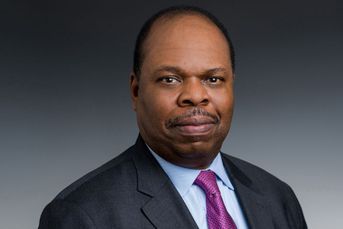Latest Wells Fargo flap underscores need for fiduciary standard
The bank's board is looking into inappropriate 401(k) rollovers, one of the problems the DOL rule aims to prevent
The most recent scandal brewing at Wells Fargo Advisors, this one regarding questions from the Justice Department about potentially inappropriate recommendations on rollovers for 401(k) plan participants, underscores yet again why the financial advice industry needs a clear, simple fiduciary rule for all brokers and advisers and their clients.
Wells Fargo & Co., the giant bank that owns Wells Fargo Advisors, home to 14,544 brokers, revealed last Thursday that its board of directors had launched an investigation into certain investment practices in response to questions from the feds.
In light of the latest investigation at Wells Fargo, the Department of Labor’s decision in November to delay the start of the enforcement mechanisms of its fiduciary rule looks particularly misguided.
At the time, the DOL said it was postponing till July 1, 2019, the legally binding contract between brokers and retirement-account clients that requires brokers to act in their best interests. That part of the DOL rule was supposed to take effect at the start of this year.
The financial advice industry had been waiting for the DOL fiduciary rule to be gutted since Donald J. Trump, a pro-business Republican, was elected president in November 2016.
Regardless, brokers need to work as fiduciaries. The current suitability standard for brokers strikes me as out-of-date and too wishy-washy for this data- and technology-driven era.
One of the prime reasons for the DOL fiduciary rule in the first place was to protect clients from getting jammed up with pricey products when they move their retirement savings from an employer plan to an individual retirement account at a brokerage firm. The rollover business can be lucrative for advisers and their firms.
The knock on the DOL rule was that it was cumbersome, confusing and expensive for businesses to put in place. The criticisms are true. But that doesn’t mean that a fiduciary rule for brokers should be erased from the financial advice industry’s collective thinking.
Wells Fargo has seen a string of embarrassments and scandals in the past year and a half. The information regarding what went wrong most recently at the moment remains vague. The company hasn’t revealed what specifically was amiss with the advice provided on retirement plan rollovers.
The Wells Fargo inquiry, which was revealed in its annual report, “is assessing whether there have been inappropriate referrals or recommendations, including with respect to rollovers for certain 401(k) plan participants, certain alternative investments, or referrals of brokerage customers’ to the company’s investment and fiduciary services business,” according to the report.
The review focuses on “certain activities” in the bank’s Wealth and Investment Management group, which includes Wells Fargo Advisors.
Wells Fargo “has determined that there have been instances of incorrect fees being applied to certain assets and accounts, resulting in overcharges,” according to the annual report.
Adding to the woes at Wells Fargo Advisors, Massachusetts said Thursday that it had opened an investigation into Wells Fargo Advisors and was looking for information related to the 401(k) rollover issues the bank had disclosed at the start of the month.
“Given the recent retirement savings crisis in America, referrals and recommendations involving 401(k) accounts should be closely scrutinized, in light of the Department of Labor’s fiduciary rule,” Secretary of the Commonwealth William Galvin said in a press release.
Financial advisers at Wells Fargo are already sick and tired of the bank’s string of scandals. This 401(k) rollover investigation is only the latest issue for them to worry about. Clients read headlines and come to advisers with difficult questions about the firm.
In September 2016, Wells Fargo’s retail banking group was fined $185 million by regulators for opening banking accounts for a few million customers without their knowledge or approval. The bank also was scrutinized last year for its auto-loan practices, with hundreds of thousands of clients who took out car loans being charged for insurance they didn’t need.
Questions around 401(k) rollovers into broker-sold and directed IRAs are at the heart of the debate on whether brokers should be fiduciaries. High fees can erode investors’ returns, hampering an individual’s retirement.
A fiduciary rule for brokers selling IRAs would simplify fees, making them more transparent, and eliminate conflicts of interest.
Wells Fargo called the problem overcharging in its annual report. And high fees hurt investors.
“During 1990-2012, defined benefit plans outperformed defined contribution plans by 0.7 percent,” according to a 2015 paper from the Boston College Center for Retirement Research. “Since this differential remains even after controlling for size and asset allocation, the likely explanation is higher fees in defined contribution accounts. The available data suggest that IRAs produce even lower returns than defined contribution plans, which implies trouble ahead given the massive amount of money that is being rolled over into IRAs.”
Wells Fargo Advisors “fully supports” a fiduciary standard of care for the financial advice industry and wants a rule under which all firms act appropriately for clients, said Shea Leordeanu, a company spokesperson. She declined to comment about the investigation into potentially inappropriate recommendations in rollovers.
On Tuesday, Bloomberg News reported that a group of investors, led by nuns, pushed Wells Fargo & Co. to agree to publicly report on the root causes of its rash of ethical lapses in recent years.
Here’s one potential cause: Brokers are not yet fiduciaries but remain salesman.
Once Wells Fargo and the rest of the investment advice industry dump the suitability standard and embrace the fiduciary model, investors, including the Sisters of St. Francis of Philadelphia, will rest more easily.
Learn more about reprints and licensing for this article.








